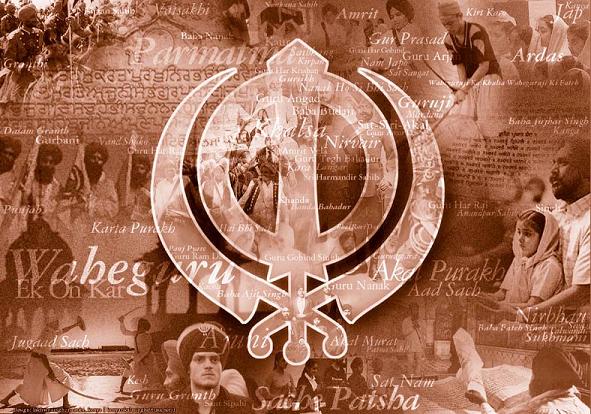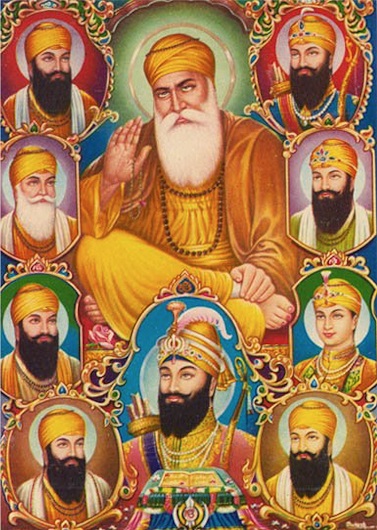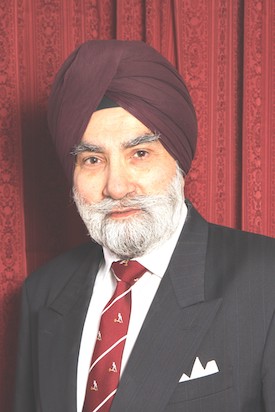I promised a colleague who works with the police and legal officials to write about the concept of "honour" amongst the Sikhs from the cultural and religious aspects. A better understanding of what is meant by “honour” is needed.
The background is crimes of "honour killings" by otherwise sensible and even "respectable" people. Culture and, maybe, even misunderstood religion, may have something to do with this. People with Muslim and Sikh backgrounds have been mentioned, but, as someone has pointed out on the cyber forums, the “crime” of honour killing is quite common in many eastern and middle-eastern cultures. So, it is a misconception that it exists amongst the Panjabi Muslims or Sikhs only. It is, however, regrettable that even the name of an ex-Takht Jathedar has been linked to such a crime.
I recall that in one murder case the question asked was, if swearing at a Sikh would provoke him to kill. We have cases of parents from different religious backgrounds killing their daughters - not defaulting sons mind you, but daughters ! - for the sake of "family honour". This targeting of girls also says something about the position of women in such societies.
A Sikh cannot “take” human life under any circumstances whatsoever. That has to be the starting point from Sikh religious or Sikhi aspect. The sword of a Sikh sant-sipahi (saint-warrior) is for defence, and that only when all other means have failed. The pointer here is towards "intent to take life". Even in self defence the intention must remain just that and no more. That one or more lives may be lost as a result could also be the regrettable outcome of self defence or a collective "dharam yudh" to protect the innocent and the weak.
So what is "honour" in the above context when any perceived “attack” on such honour provokes one to react violently or even result in pre-meditated murder as in the case of parents killing their daughters in certain cultures.
Such “honour” is quite different from the same word when used to mean
"respect", "honour/award" etc . The Panjabi words which readily come to
mind are "izzat" or "anakh izzat", "aan shaan", "patt",
and the related concept of "parda" ("parda dhakna"). "Patt"
is perhaps the closest to what we have in mind. The Gurbani "tuk"
- Je jeevai patt lathi jai. Sabh haram jeta kicch Khai"
( All that one eats is sinful if it is to sustain a life without
honour.) - is mostly misquoted (out of Gurbani context) and
misinterpreted. That context from the previous "tuk" is, "Only he is
truly living in whose mind the Lord resides, Says Nanak, none else is
really alive. [Therefore] If someone lives [without Waheguru awareness]
he leaves this world dishonoured. All that he eats to live is
forbidden."
"Satgur Sikh ka parda dhakai" also refers to the Guru protecting
one against own weaknesses.
What is honour ?
Since I first wrote about “honour” on the cyber forums, questions have been raised about (mercy) killing in certain circumstances to defend “honour”. For example, documentaries shown recently recorded the terrifying events of 1947, when Sikh women preferred death at the hands of own family men rather than falling into the enemy hands. Is killing to save “honour” justified in those circumstances ?
This is a very difficult question. Perhaps, reflection on the Sikhi concepts of accepting God’s Will (bhana mannana), treating life as sacred and accepting suffering as part of life would provide the answers. The Sikh way is that evil has to be faced and defeated and not avoided. Sikh men and women must be prepared mentally and physically (tiar-bar-tiar Khalsa) to face and resist evil.
During the 18th century Sikh freedom struggle, Sikh women fought side by side with men and made great sacrifies which are remembered in the daily Sikh Ardaas (supplication). It is when the Khalsa way is forgotten that women are treated as weak and unable to defend themselves. Sikh women brought up in the Khalsa tradition should not have to face the terrible choice faced by their sisters in 1947.
In Guru Granth Sahib, honour is often referred to as “parda” (meaning “cover”) which, if lifted, would reveal one’s inner weaknesses. All human beings are fallible. Therefore, a Sikh, while striving to live an honest and truthful life, prays to the Guru to keep his “parda” on (i.e. save his honour). This concept of “honour” (“parda”) in Guru Granth Sahib can be the topic of a separate discussion.
"Patt" or "anakh izzat" (honour) is not a Sikh religious but a cultural trait and not necessarily peculiar to the Panjabis only. "Patt" is respect in the community., When "patt" is attacked the reaction can be violent even from a sane and ordinarily law-abiding person. Such an urge to violence when insulted, must be controlled, or one should be prepared to face the legal consequences. When one feels that his or her "patt" is under attack one may react violently. Or, one may fear that the "parda" (social respect/cover) is going to come off and even take another life in such circumstances. For example, a western person is likely to be more tolerant about own daughter going out with, or marrying, someone from another religion or ethnic background. The reaction of someone with eastern background would be less tolerant.
However, religion or culture can offer no defence for "honour killing".
Sikhs should not lend any community sympathy or support in such cases. It is entirely for the lawyers to put in a plea if there are any mitigating circumstances in a criminal case. The sentence may or may not be reduced.
© Copyright Gurmukh Singh (U.K.)
E-mail: sewauk2005@yahoo.co.uk
Please acknowledge quotations from this article
Articles may be published subject to prior approval by the author


